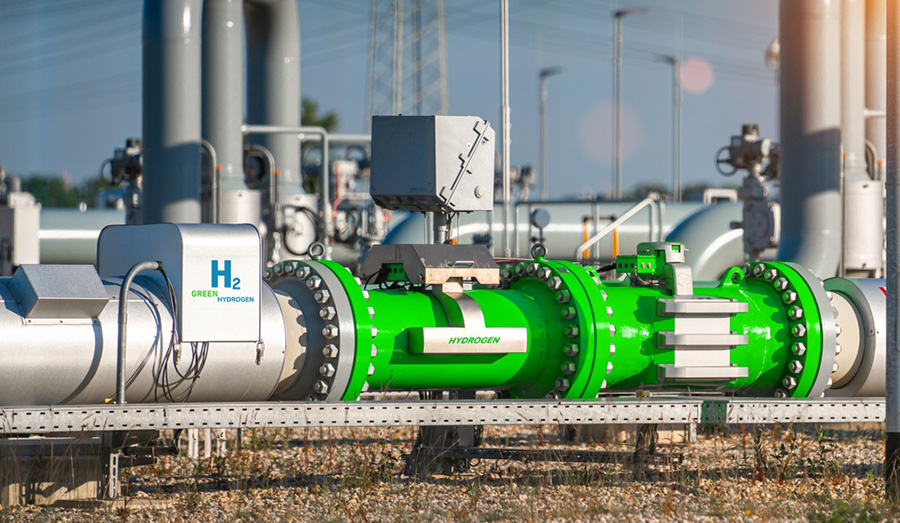Azerbaijan is uniquely equipped to successfully develop a green hydrogen industry and may soon supply the EU with the climate-friendly fuel.
The prolific Caspian fuel exporter is expected to soon export green hydrogen gas to the EU, according to Vladimir Rogov, a Managing Director and Partner at Boston Consulting Group (BCG) based in Baku, Azerbaijan.
Azerbaijan has “a unique combination of all components needed for the development of the hydrogen sector,” said Rogov. “There are natural resources, infrastructure, and the end-consumer all in a compact geography. The potential of Azerbaijan’s renewable energy resources is extremely high, ensuring a strong competitive advantage, namely, the low cost of green hydrogen production.”
Green hydrogen is a type of hydrogen gas that is produced through the process of electrolysis, using renewable energy sources like wind or solar power to split water molecules into hydrogen and oxygen. This process produces hydrogen gas without emitting any greenhouse gases or pollutants, making it a clean and sustainable form of energy.
This is opposed to grey hydrogen and blue hydrogen. Grey hydrogen is the most common way to produce hydrogen today and involves using natural gas as a feedstock and emitting carbon dioxide as a byproduct. Blue hydrogen captures and stores the carbon dioxide emissions from the production process, preventing them from entering the atmosphere. While blue hydrogen is still produced from natural gas like grey hydrogen, the captured carbon dioxide can be stored or used in other industrial processes, reducing its environmental impact.
“In terms of profits, the country could earn from $230–500 million per year, given the expected hydrogen price decrease in Europe nearly twice, from current around $11 to $5.8/kg. Thus, the full cost of the green hydrogen delivered through the pipe can be very competitive and can allow for substantial margins,” said Rogov.
In addition, the major advantage for the Azeri hydrogen industry is the pipeline infrastructure that currently already carries natural gas to Europe. The Southern Gas Corridor, operational since 2020, is a vast series of pipelines that carry 10 billion cubic meters of gas per year through Turkey, Greece, and Albania to a gas terminal on the Adriatic coast of Southern Italy. This route is far more efficient than transporting hydrogen gas overseas, in which case it must be liquefied for storage to later be regasified.
For Europe to meet the goals of Paris 2050, the continent will have to spend trillions in boosting renewable energy, and broader decarbonization efforts. According to McKinsey & Company analysis, reaching net neutral status by 2050 would cost the continent roughly €28 trillion over the course of the next 30 years.
“To reach net zero by 2050, low-carbon hydrogen is a novel option to decarbonize industries with hard-to-abate emissions, such as basic chemicals, aviation, steel production, freight and road transportation, and shipping,” said Rogov. “Governments and companies will have to invest approximately $6 trillion to $12 trillion between 2025 and 2050 to produce and transport enough low-carbon hydrogen to meet demand, according to BCG’s calculations.”
Some activists in Europe fought against their government buying Azeri gas because of the Azerbaijani government’s history of repressive and authoritarian behavior. For example, activists and journalists are regularly prosecuted and imprisoned on false charges. A 2017 joint investigation by more than a dozen media outlets uncovered a complex money laundering scheme dubbed the ‘Azerbaijani Laundromat’, which sought to launder around $2.9 billion in order to pay European politicians to whitewash Azerbaijan’s international reputation.
Boston Consulting Group previously collaborated in the world’s largest green hydrogen initiative, a 1.3 gigawatt electrolysis facility in Denmark, to be funded by Danish renewable energy firm Orsted and supported by several other industry leaders.
Source : Consultancy.eu


